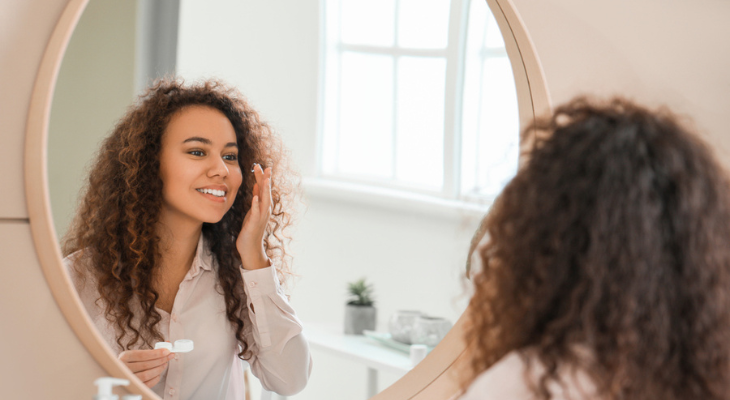
Tired of Contacts? Consider Orthokeratology
Contact lenses make it possible to see clearly without eyeglasses, but they're not the best choice for everyone. If wearing contacts makes your eyes feel dry and uncomfortable, or you're looking for a simpler solution, orthokeratology may offer a good option. Orthokeratology involves wearing special contact lenses at night that reshape your cornea and sharpen your vision.
How the Curvature of Your Cornea Affects Vision
Your iris and pupil are covered by the cornea, a clear layer of rounded tissue. The cornea bends the light rays that enter your eyes, ensuring that they're properly focused on the retina. It's the retina's job to turn the light rays into electrical impulses and send them to the brain via the optic nerve. Once the impulses reach the brain, they're processed and converted into recognizable images.
If your cornea isn't perfectly curved, it won't be able to bend light rays properly. A cornea that curves more than normal causes myopia (nearsightedness). Due to the increased curvature, light rays focus in front of the retina instead of directly on it. When this happens, objects in the distance look blurry.
The opposite problem is responsible for hyperopia (farsightedness). Light rays focus behind the retina because the cornea is too flat. If you're farsighted, distant objects are sharp, but objects up close look blurry. Astigmatism, another problem that affects the cornea, occurs when the cornea is abnormally shared. Astigmatism causes blurry vision when you look at near and far objects.
Correcting Your Vision with Orthokeratology
During orthokeratology treatment, you'll wear special gas-permeable contact lenses while you sleep. These lenses exert gentle pressure that changes the shape of the cornea.
Unlike other contact lenses, these lenses are specially made to address your particular issues. Before you receive the contact lenses, your optometrist will use a corneal topography machine to create a surface map of your cornea. While the mapping is performed, he'll ask you to look at a bowl-shaped machine that contains a series of rings. Mapping only takes a few minutes and is painless.
In addition to improving poor vision caused by myopia, hyperopia and astigmatism, orthokeratology is also used to slow the progression of myopia in children or improve near vision if you have presbyopia. Presbyopia is an age-related problem that makes it difficult to see small print.
It may take a few days to see an improvement in your vision after your start wearing the contact lenses. According to the American Academy of Ophthalmology, you may not notice the full effects of orthokeratology for two weeks or longer. As long as you continue to wear the contact lenses at night, your vision will remain sharp during the day. If you decide to stop wearing your lenses, your vision will become blurry again in two or three days. You should wear the lenses for at least six hours every night, although eight hours is even better.
Caring for your contact lenses is simple. You'll simply place them in a cleaning and disinfecting solution every morning and put them back in your eyes in the evening.
Wondering if orthokeratology is a good choice if dryness is a problem for you? Gas-permeable lenses allow more oxygen to reach your eye than soft contact lenses and cover a smaller area of the eye. Their smaller size means that your eye stays moister during the night.
Who Can Benefit from Orthokeratology?
Orthokeratology can be a good idea if:
- Wearing Contacts Irritates Your Eyes or Worsens or Causes Dry Eye
- You Are Allergic to Contact Lens Solutions
- You Work or Live in Dry, Dusty or Smoky Areas that Make Contact Lens Wear Challenging
- You Want to Exercise or Swim Without Worrying About Your Contact Lenses
- You're Looking for an Alternative to Laser Refractive Surgery
- You Want to Prevent Your Child's Nearsightedness from Getting Worse Quickly
Would you like to find out if orthokeratology is right for you? Contact our office to schedule an appointment with the optometrist.
Sources:
American Academy of Ophthalmology: What Is Orthokeratology?, 9/13/2018
https://www.aao.org/eye-health/glasses-contacts/what-is-orthokeratology
All About Vision: Ortho-K and Corneal Refractive Therapy: Overnight Contacts to Correct Myopia, 2/27/2019
https://www.allaboutvision.com/contacts/orthok.htm
Review of Myopia Management: Prescribing Orthokeratology for Adult Patients, 12/15/2021
https://reviewofmm.com/prescribing-orthokeratology-for-adult-patients/
WebMD: What Is Orthokeratology?, 8/24/2022
